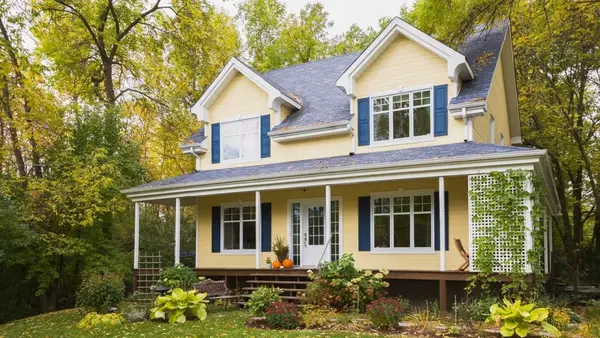Government Home Loans: Make Homeownership Possible


Government home loans, like VA, FHA and USDA loans, are designed to provide qualified applicants with better loan terms and interest rates. They’re insured by the federal government, and as a result they’re not held to the more traditional guidelines for income, debt, credit and down payment that Fannie Mae and Freddie Mac set. Government agencies work with approved mortgage lenders to help home buyers and homeowners secure financing for their home purchase, renovation or refinance. In addition, the government directly funds mortgage assistance programs to help first-time home buyers and other groups with mortgage related expenses. Each type of government loan caters to a unique set of borrower needs. FHA loans are typically for borrowers who may need more mortgage assistance or who are unable to qualify for a conventional loan based on their income, debt or credit. VA loans provide additional benefits to thank those who have served their country, and USDA loans aid those who choose to live in low populated, rural areas with more affordable loan options. Check if you pre-qualify for a government-backed loan with us at Zillow Home Loans.
What does government-backed mean?
Government-backed means that the home loan is insured by one of three government agencies: the Federal Housing Administration (FHA), the US Department of Agriculture (USDA) or the US Department of Veterans Affairs (VA). While the loans are issued by private lenders, the government promises to pay a portion of the loan amount back to the lender if the borrower defaults. This added assurance lowers the risk for lenders, allowing them to offer better loan terms to borrowers.
How does a government-backed home loan work?
All government-backed home loans are issued by a private lender, like a mortgage company, bank or credit union. Similarly to any other type of loan, you’ll apply either in-person, online or over the phone with one or more lenders. Because the federal government insures the loan against default, government home loans are typically considered easier to qualify for — putting homeownership within reach for more people. Lenders can offer home loans with better interest rates without the need of a larger down payment or strong credit score. The difference is government-backed loans usually have other types of criteria that you must meet in order to qualify like income limits.
Types of government home loans
There are three common types of government-backed home loans: FHA, USDA and VA. Each loan is designed to address specific challenges that buyers and homeowners face when securing financing for a home.
FHA loans
FHA loans are backed by the Federal Housing Administration. They’re a popular choice for first-time home buyers, because the credit and income requirements are less strict compared to a conventional loan.
Benefits: FHA loans allow for down payments as low as 3.5% and credit scores as low as 580. In some cases, buyers can have an even lower credit score with a larger down payment. Because of the low down payment requirements, FHA loans are popular with first-time buyers who don’t have existing equity from another property.
Drawbacks: FHA loans aren’t right for every borrower. FHA loans must be used for a home that will be your primary residence. There are also limits to how much you can borrow. Unlike other government home loans, FHA borrowers must pay a mortgage insurance premium, known as MIP, for the life of the loan to protect the lender in the event of loan default. You can shorten that span to 11 years by making a 10% or more down payment. MIP can make both your closing costs and ongoing monthly payments more expensive. You’ll pay 1.75% of the purchase price at closing, then between 0.5% and 0.75% of the purchase price yearly (divided into 12 monthly payments).
VA loans
VA loans are backed by the Department of Veterans Affairs and are available to military service members, veterans or their surviving spouses. The goal of the program is to provide a lifetime benefit to those who have given their service to the United States, making home ownership more affordable in the process. VA loans can be used to buy, build or refinance a primary residence.
Benefits: VA loans are easier to qualify for than conventional loans — you need zero down payment, limited closing costs and no private mortgage insurance (PMI). You can also assume the seller's existing VA loan with little to no change in rate or terms. In addition, the seller can contribute up to 4% in concessions.
Drawbacks: Borrowers must pay a funding fee to support the program. For VA loans, the one-time fee is paid at closing and costs between 0.5% and 3.6% of the loan amount. The fee can also be included in the total financed amount and paid over the life of the loan. Note, some veterans who have a service related disability may qualify to have the fee partially or fully waived.
USDA loans
USDA loans are backed by the United States Department of Agriculture and designed to fund rural housing development for low- to moderate-income individuals and families.
Benefits: USDA loans can be used to purchase, build, repair or refinance a home in a qualifying rural area. USDA loans are appealing, because they have a zero down payment option and interest rates as low as 1%, with no mortgage insurance requirements. Additionally, there are lower credit score requirements than conventional loans.
Drawbacks: USDA borrowers have to pay an upfront and an ongoing guarantee fee to help keep the program running instead of paying mortgage insurance. It’s similar to the funding fee VA loan borrowers pay. The guarantee fee is 1% of the loan amount paid at closing, followed by a 0.35% annual premium, split among each of the monthly mortgage payments.
FAQs about government home loans
Are there government home loans for poor credit?
Yes. Part of what makes government-backed loans so beneficial for borrowers is that they have some of the lowest credit score requirements. Minimum credit scores vary by the type of government-backed loan. Remember that individual lenders can set their own criteria, above and beyond government requirements, but generally, these are the credit score minimums:
FHA loans: 500-580 minimum credit score
USDA loans: 580-620 minimum credit score
VA loans: 580-620 minimum credit score
Are there governmenthome improvement loans? Government-backed loans aren’t just for purchasing a home. The FHA, VA and USDA all offer home improvement loans that can be used to repair, improve or modernize a borrower’s home. Similarly, you may be able to find home repair assistance programs specifically designed for making your home more energy efficient. If you’re interested in these programs, reach out to your lender to explore your options. Loan officers at Zillow Home Loans can help you find the right government-backed home loan program for you.
Are there government home loans for senior citizens?
Senior citizens have unique needs, and the FHA’s home equity conversion mortgages (HECM) program is a great example of a loan offering that meets this group’s specific needs. A type of reverse mortgage, an HECM allows homeowners 62 and older to convert their home equity into cash, without selling. That money can be used to cover everyday expenses, fund retirement or complete home improvements.
Is there government assistance for first-time home buyers?
Yes, there are many government assistance programs for first-time home buyers. Some are federally funded, while others are paid for by city, county or state governments. There are many types of assistance available, depending on your financial situation. Here are some of the most common. Remember, your lender can be a helpful resource in identifying programs that make home ownership more affordable.
First-time home buyer grants: Funded by the federal government, these grants are disbursed by states and other municipalities. There are grants geared toward lower-income buyers, as well as grants earmarked for specific neighborhoods or buyers in certain professions, like firefighters and teachers.
Closing cost assistance: You may be able to find assistance specifically designed to help pay for closing costs. Since closing costs must be paid in cash at closing, they can represent a significant hurdle for buyers with strong credit but limited cash on hand.
Forgivable loans: Structured like a second mortgage, a forgivable loan doesn’t have to be repaid unless you sell the home before an agreed-upon number of years. They’re a popular assistance program for people who need money for a down payment.
It’s important to note that most government assistance programs can be used in conjunction with FHA, VA and USDA loans.
Recent Posts

Discover Luxurious Living in Hoschton: A Closer Look at 173 Tennessee Walker WAY

A Complete Guide to A Home Equity Line of Credit (HELOC)

Government Home Loans: Make Homeownership Possible

10 Tips for Organizing Your Whole House

What To Know About Smart Home Tech

8 Value-Adding Home Improvements You Can Do for $1,000 or Less

Health and Wellness Upgrades That Make Your Home Better

How to Find an Apartment: 11 Ways to Beat the Hot Rental Market

5 Things to Look for in a Rental Listing

6 Tips for Finding a Pet-Friendly Rental
